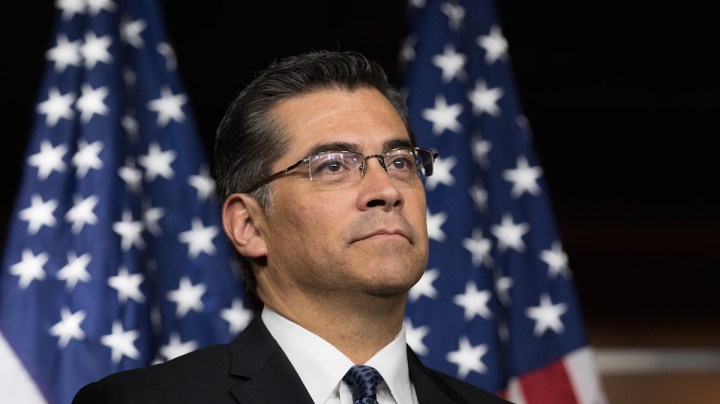California Becomes First State to Sue Trump Administration for Controversial Sanctuary City Policy

Rep. Xavier Becerra (D-CA) listens during a news conference to discuss the rhetoric of presidential candidate Donald Trump, at the U.S. Capitol, May 11, 2016, in Washington, DC. Photo by Drew Angerer/Getty Images News
Following in the footsteps of Chicago and San Francisco, the state of California has sued the Trump administration over its controversial sanctuary cities policy. With a January 25 executive order, President Donald Trump vowed to take away federal funding from sanctuary cities – that is, those that refuse to release undocumented immigrants to United States Immigration and Customs Enforcement agents. According to Politico, California Attorney General Xavier Becerra stated at a press conference that the Justice Department has violated the Constitution by adding new stipulations for federal grants without Congress’ approval.
“We abide by federal law,” he said. “The federal government should do the same. … The federal government is using the threat of its power, of its size, to bully local jurisdictions to do what they want.”
The suit – filed Monday evening at the US District court in San Francisco – argues that the federal government is trying to coerce cities and states into working with immigration agents. With about $28 million in grants at risk of being lost, the state is fighting the hateful policy. “We will fight to get back the tax dollars that we contribute to the federal Treasury to do the work of local law enforcement here in California that we not only deserve, but we pay for as federal taxpayers,” Becerra added.
He added that forcing states to carry out these immigration action goes against the 10th Amendment, which reserves unenumerated powers to the states. But unlike Southern states that used the 10th Amendment to go against civil rights enforcement decades ago, Becerra says the state do not aim to defy federal law. “We’re not asking our police and sheriffs’ deputies to violate the rights of the people they’re sworn to protect,” Becerra added. “There’s a very different use of the 10th Amendment and the states rights argument today. … We’re trying to protect people, not to harm them.”